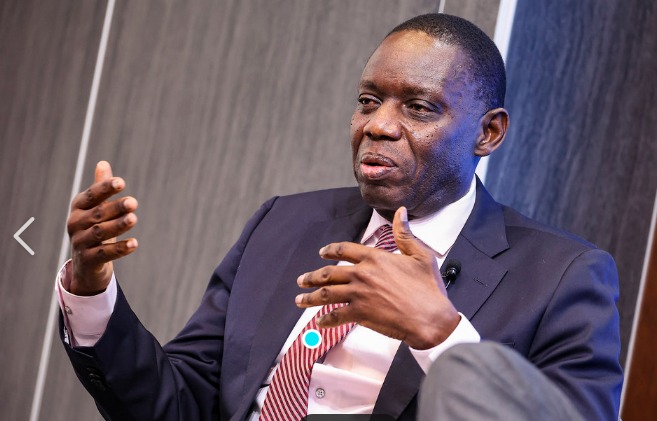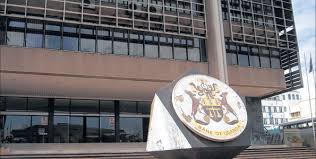Shs8tn Freeze: Judicial Seminar Calls for Action on Delayed Development

Business
The staggering figure, equivalent to one-third of the country’s domestically generated revenue, has sparked urgent calls for judicial and financial reforms to unlock this capital and catalyze development.
The Judicial Colloquium on Finance and Banking has brought renewed focus to the economic toll of Uganda’s frozen assets, estimated at Shs8 trillion.
The staggering figure, equivalent to one-third of the country’s domestically generated revenue, has sparked urgent calls for judicial and financial reforms to unlock this capital and catalyze development.
Delivering the keynote address, Deputy Governor of the Bank of Uganda, Michael Atingi-Ego, highlighted the profound impact of frozen funds on the nation’s economic trajectory.
These assets, tied up in litigation, represent a bottleneck to critical development projects, stifling progress and reducing opportunities for millions of Ugandans.
“This impasse underscores a delayed development trajectory and missed opportunities that could otherwise uplift millions of Ugandans,” Atingi-Ego stated.
He called for collective action to align judicial decisions with financial stability and improve access to credit.
A Call for Synergy
The colloquium, which convened a diverse group of legal and financial stakeholders, focused on creating stronger synergy between the judiciary and economic policy.
Discussions underscored the need to expedite the resolution of financial disputes, streamline court processes, and foster investor confidence.
Stakeholders emphasized the judiciary’s critical role in enabling a dynamic economy by ensuring financial disputes are resolved efficiently.
The inability to unlock the frozen funds, they argued, undermines not only investor trust but also the broader economic environment.
Atingi-Ego warned of far-reaching consequences, including reduced access to affordable financing and exacerbated fiscal challenges. He urged the judiciary to play a proactive role in supporting Uganda’s financial ecosystem.
Proposed Reforms
Participants proposed key reforms to address the challenges:
-
- Specialized Courts: Establishing dedicated courts to handle commercial and financial disputes could accelerate case resolution and reduce the backlog.
-
- Judicial Training: Enhancing the judiciary’s capacity to deal with complex financial cases would improve efficiency and decision-making.
-
- Technological Integration: Leveraging technology to streamline court processes and improve case tracking was highlighted as a necessary step.
These measures aim to create a judicial framework that not only supports economic stability but also attracts greater investment to Uganda.
A Path Forward
The Shillings 8 trillion figure serves as a stark reminder of the untapped potential within Uganda’s economy.
As the colloquium continues, the focus remains on actionable solutions that will break the deadlock on frozen assets and pave the way for sustainable development.
With collaboration between the judiciary, financial institutions, and policymakers, Uganda can unlock these funds and chart a course toward a more prosperous future.




